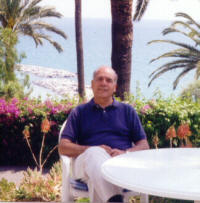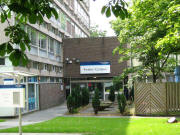|
Whatís
it like to be a Fulbright Exchange Teacher in Manchester, England?
Itís an opportunity of a lifetime. Itís a paradigm shift.
Itís like being a first year instructor.
It's dealing with the complicated British National Curriculum,
and the challenge and complexity of teaching several new college
classes with students of differing age groups.
Each group and class is assessed and evaluated by a different
educational governing body, and each requires different procedures and
recording forms. |
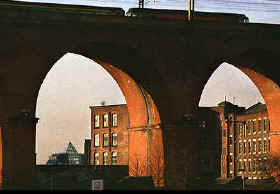
|
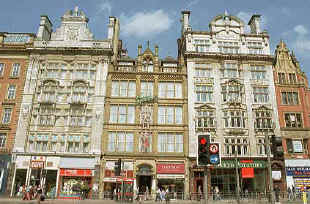 |
My teaching experience at City
College Manchester was demanding, but never dull.
At the September student enrollment period, each student was
personally interviewed and screened by faculty before being accepted
into a class. I was in
awe as to how hard the faculty and management work together and still
manage to be friendly and helpful.
I was also impressed with the weekly staff meetings where
faculty members gather to have serious discussion about their
students, the curriculum, and course planning
|
|
Manchester
has been called ďThe Rainy City,Ē but it rains no more there than
in the rest of the UK. The
city is renowned as the ďClub Capital of Europe,Ē because it has a
large student population studying at the numerous colleges and
universities. Fielden
Park Center where I taught is located near Didsbury Village and is
surrounded by a vast selection of student/faculty housing,
restaurants, shops and several pubs.
The Woodstock Tavern was literally only a few steps away from
the campus and offered a pleasant environment of fine foods and
outside tables where students and faculty could meet. |
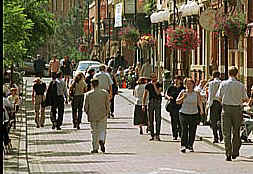 |
|
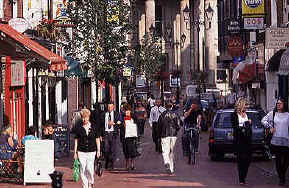
|
I
found the students to be, for the most part, conscientious and
hardworking. Although I
did have a hard time adjusting to the various English accents, and
sometimes found it hard to understanding students when they talk fast
or mumbled. But one of
the nicest surprises about being an Exchange Teacher is wandering
around Didsbury Village and finding that you like its quiet, relaxed
atmosphere - and meeting one of your students shopping or working in
one of the pubs or restaurants. |
|
So,
thatís what itís like to be an Exchange Teacher in England?
Itís remembering to look right and stay left.
Itís learning to use the knife with your right hand, while
shoveling the food onto your fork in the left hand.
Itís taking advantage of the fact that it is just a hop, skip
and a jump to the major capitals and playgrounds of Europe.
But best of all, everything is new and wonderfully different. |
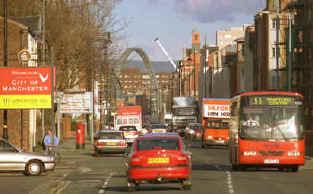
|
|

|
Iím
reminded of
Bill Brysonís comments about Britain in his best selling
book ďNotes From a Small
Island,Ē
What
an enigma Britain will seem to historians when they look back on the
second half of the twentieth century.
Here is a country that fought and won a noble war, dismantled a
mighty empire in a generally benign and enlightened way, created a
far-seeing welfare state- in short, did nearly everything right - and
then spent the rest of the century looking on itself as a chronic
failure. The fact is that
this is still the best place in the world for most things - to post a
letter, go for a walk, watch television, buy a book, venture out for a
drink, go to a museum, use the bank, get lost, seek help, or stand on
a hillside and take in the view.
|
 City
City